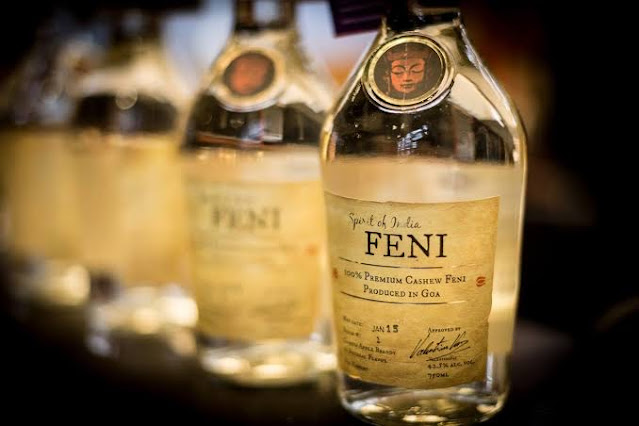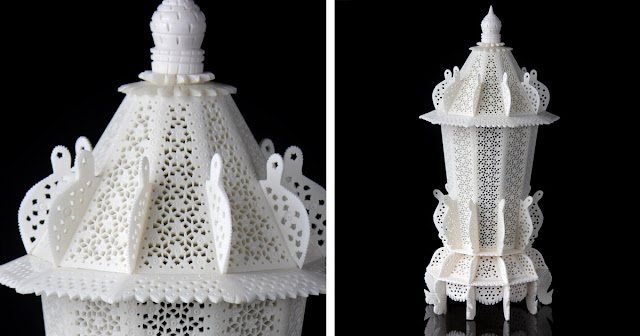Exploring Feni - The Famous Cashew Liquor from Goa
A TASTE OF HISTORY:
Savouring the Flavours of a
500-year-old Cashew Liquor from Indian Homes
Have you ever wondered about the journey your cocktail takes from its humble beginnings to the glass in front of you? Well, get ready for a wild ride because we're diving into the fascinating world of cashew liquor production - a process that starts on plantations and ends with every sip leaving you wanting more. From the harvesting of cashews to the distillation process, this post will give you an inside look at how a 500-Year-Old Cashew Liquor tradition is still alive in India and how it is made from plantation to bottle. Get ready to raise your glass and discover how cashew liquor is made!
Introduction
to the Cashew Liquor Production Process
The cashewtree (Anacardium occidentale) is a tropical evergreen tree that produces the
cashew nut. This native Brazilian tree grows up to 40 feet (12 meters) tall and
resembles a sumac bush. The cashew apple, sometimes called the cashew pear, is
the fruit of the cashew tree. The pulp surrounding the seed at the end of the
apple is sweet and juicy, but it has a strong, unpleasant smell and taste.
The Cashew
Liquor Production Process begins with harvesting the fruit from the trees. Once
harvested, the apples are then crushed and pressed in order to extract their
juice. This juice is then fermented for several weeks in order to create wine.
After fermentation, the wine is distilled several times in order to create a
clear liquor. This liquor is then left to age in oak barrels for several months
or even years. Finally, the liquor is bottled and enjoyed!
The cashew
fruit grows on the cashew tree, which is found in Goa, India. The tree produces a
yellow or red fruit that contains a wide variety of nutrients, including
vitamins C and E, potassium, magnesium, and iron. The fruit also contains a
small seed, known as the cashew nut.
The fruit
of the cashew tree can be used to make a variety of different foods and
beverages, including cashew liquor. Cashew liquor is made by fermenting the
fruits of the cashew tree. The fermentation process converts the sugars in the
fruit into alcohol. Once the fermentation process is complete, the liquor is
then distilled to remove impurities and to produce a clear, amber-colored
beverage.
Cashews
are a source of many important vitamins and minerals. They are also low in calories
and fat, making them a healthy snack option. Cashews are a good source of
dietary fiber, which helps to promote digestive health. Additionally, studies
have shown that consuming nuts like cashews can help to lower cholesterol
levels and improve heart health.
Historical
Significance of Cashew Liquor
Cashew
liquor has a long history in India, dating back to the 16th century. It is
believed that the Portuguese introduced cashew trees to the coastal regions of India
during their colonial rule, and the local communities soon discovered the
potential of cashew apples for making liquor. Cashew liquor became an important
part of the local culture and economy, with many families in the coastal
regions of Goa, Maharashtra, and Karnataka producing their own homemade feni.
In the
early days, cashew liquor was primarily made for personal consumption and was
considered a household staple. It was often used for medicinal purposes, as it
was believed to have therapeutic properties and was used to treat ailments such
as coughs, colds, and indigestion. Cashew liquor was also used in religious and
social ceremonies, such as weddings and festivals, as it was considered a
symbol of hospitality and celebration.
Over time,
cashew liquor gained popularity beyond the local communities and became a
sought-after beverage among tourists and travelers visiting the coastal regions
of India. Today, cashew liquor is commercially produced and sold in many parts
of India, but traditional families who have been making feni for generations
still follow the old-fashioned methods to preserve the authenticity and
cultural significance of this age-old practice.
Historical
Context of the 500-Year-Old Indian Practice
The
traditional cashew liquor, known as feni, has been produced in India for over
500 years. The process begins with the collection of ripe cashews from the
plantation. The fruits are then crushed and the pulp is fermented to produce a
tasty liquid that is typically around 40% alcohol.
Cashew liquor was originally popular among the lower classes in India as it was a cheap way to get drunk. However, over time it has become more mainstream and is now enjoyed by people from all walks of life. There are even some high-end brands that command a premium price. The production process is fascinating and it’s easy to see why this delicious beverage has such a long history in India.
The cashew
tree is native to Brazil, but it was eventually introduced to India by the
Portuguese. The trees thrived in India's tropical climate and the fruit became
a popular snack food. Eventually, someone had the bright idea to fermentation
the fruit in order to create an alcoholic beverage.
This
practice likely began over 500 years ago and has continued ever since. The
Indian state of Goa is particularly renowned for its cashew-based liquors. In
fact, Goan locals often refer to this type of liquor as "feni."
Traditionally, feni is made using two methods:
the double distillation method and the single distillation method. The double
distillation method is more commonly used as it results in a higher quality
product.
To make
feni, ripe cashew fruits are first crushed to release their juice. This juice
is then fermented for several weeks before being distilled twice. The resulting
liquid is clear and fairly strong, with an alcohol content of around 40%.
Feni can
be enjoyed on its own or mixed with other beverages like soda or juice. It's
also a popular ingredient in many traditional Indian dishes.
The
Health Benefits of Cashew Liquor
500-year-old practice of Indian families to make cashew liquor has been shown to have a number of health benefits. Cashew liquor is rich in antioxidants, which can help protect your cells from damage and may reduce the risk of some chronic diseases.
The health
benefits of cashew liquor don't stop there. This unique beverage is also a good
source of copper, an essential mineral that plays a role in many important
processes in the body, including energy production, iron metabolism, and brain
development.
What's
more, drinking cashew liquor may help boost your immune system. One study found
that people who consumed copper-rich foods had a lower risk of
developing infections.
From
Plantation to Bottle: The Fascinating Process Behind Cashew Liquor Production
The cashew tree is native to Brazil, but today it is grown in tropical climates around the world. The trees can produce fruit for up to 40 years and can reach a height of 20 meters (66 feet). Cashews are actually the seeds of the cashew apple, which is attached to the bottom of the cashew nut. The cashew apple is edible, but it is not as popular as the nut.
After the cashew fruits are harvested from the trees, the next step in production is to remove the Cashew Apple from the Cashew Nut. This is usually done by hand, as the fruit is delicate and can be easily bruised. Once the Cashew Apple is removed, it is juiced by feet by stepping on them wearing mining boots (as the hard sole extracts more juice out of them) and the juice is left to ferment for around 2 weeks. The raw Cashew seeds are sold to the factories that roast and package them.
During fermentation, yeast breaks down the sugars in the juice and produces alcohol. After fermentation, the liquor is distilled to remove impurities and unwanted flavours. The final step is to age the liquor in oak barrels, which adds colour and flavour. After fermentation, the mixture is distilled to produce cashew liquor. This liquor can be enjoyed on its own or used in cocktails.
The final
step is to bottle the liquor and label it. The bottles are then shipped around
the world to be enjoyed by people everywhere.
A
Discussion on Sustainability and Environmentally Friendly Practices
There is no denying that the plantation to bottle process of cashew liquor production is fascinating. But what makes this particular process so interesting is its sustainability and environmentally friendly practices.
From the
very beginning, the cashew fruit is left to mature on the tree until it falls
off naturally. This means there is no need for harmful chemicals or pesticides
in order to get a good crop. The cashews are then harvested by hand and sorted
into different grades.
The next
step in the process is to remove the cashew nut from its shell. This is done by
cracking each nut open with a hammer before they are placed into boiling water.
The nuts are then left to soak overnight before they are drained and roasted.
After
roasting, the nuts are ground into a paste which is used to make the actual
liquor. This paste is mixed with water, yeast and sugar before being left to
ferment for around two weeks. Once fermentation is complete, the mixture is
distilled and bottled.
The whole
process is relatively simple and doesn't require any fancy equipment or
techniques. It's also extremely sustainable as there are very little waste
products generated throughout. So next time you enjoy a glass of cashew liquor,
remember all of the hard work (and environmental friendliness!) that went into
making it!
Regional
Variations in Flavouring
The cashew tree is native to Brazil, but it can now be found in tropical climates around the world. This means that there are regional variations in the way that cashew liquor is produced.
In Brazil,
the most popular way to flavour cashew liquor is with cachaça, a type of rum
made from sugar cane juice. This gives the liquor a sweet and slightly fruity flavour.
In India, where the majority of the world's cashews are grown, many producers
use spices like cardamom, cloves, and cinnamon to flavour their liquor. This
gives it a warm and spicy taste.
No matter what region it's from, cashew liquor is a delicious and unique spirit that is perfect for sipping on its own or using in cocktails.
Conclusion
It is
clear to see that the process of producing cashew liquor involves a lot of time
and effort, but it is also highly rewarding. Cashew liquor has been used as an
ingredient in cocktails and other drinks for many years, offering a unique
flavour profile that can really elevate your favourite tipple.
Cashew
liquor production is an amazing process with a fascinating history. From the
farmers toasting and shelling the cashews at plantations, to their careful
distillation into smooth liquors that can be enjoyed by connoisseurs, there are
many steps involved in creating this delicious beverage. With so many flavors
and varieties of cashew liquor on the market today, it's easy to appreciate why
this drink has become popular all around the world. If you've ever had a chance
to sample some of these unique liquors for yourself, then it's likely that you
understand just how special they really are!
If you're looking for something interesting
and exotic to add to your drinks cabinet, then we suggest giving cashew liquor
a try - you won't regret it!
Also Read : https://bharatradition.blogspot.com/2023/04/bone-carving-intricate-prehistoric-art.html










Comments
Post a Comment